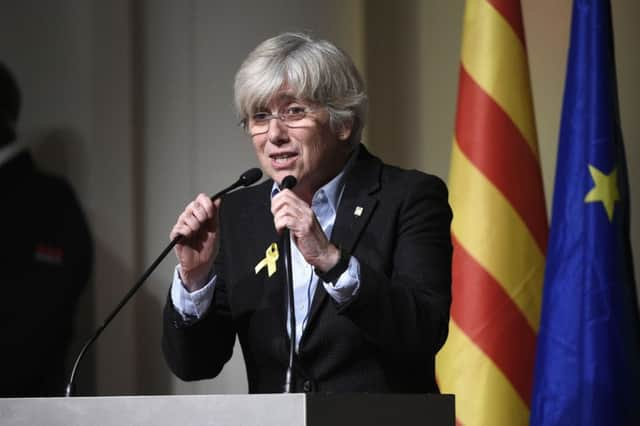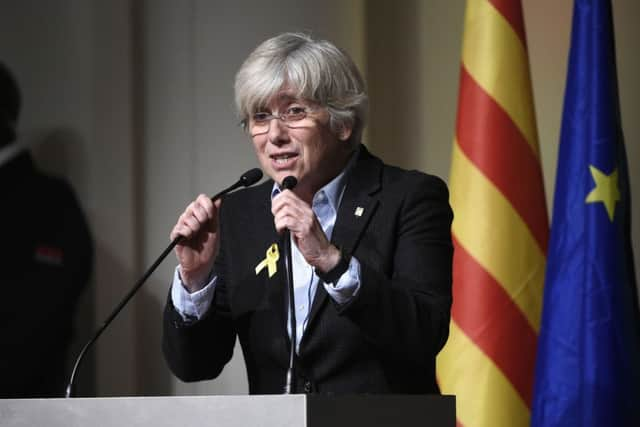Spain-Catalonia: How can the constitutional crisis be resolved?


Five former ministers in the devolved Catalan government were named in the warrants on Friday. But it was the inclusion of Clara Ponsatí that raised most eyebrows in Scotland.
The former education minister was serving in the Catalan government when it declared independence from Spain in October last year following a hugely divisive referendum - an event which was subsequently ruled illegal by the central court in Madrid.
Advertisement
Hide AdAdvertisement
Hide AdPonsati has a close links to Scotland. A former head of St Andrews University’s school of economics, she had returned to the Fife town earlier this month to resume her work as a researcher. She is now expected to hand herself in at an Edinburgh police station later this week.


Nicola Sturgeon has said she supported the right of the Catalan people to determine their own future, but added the police were obliged to follow due process and ministers were not permitted to intervene.
Ponsati is likely to follow Carles Puigdemont - who was detained in Germany on Sunday - in being extradited to Spain. Other members of Mr Puigdemont’s former government have been in prison pending trial since the immediate aftermath of the referendum.
But the impending arrest of the five former ministers will not resolve what has become an increasingly bitter constitutional crisis in a country once considered a model for its embrace of democracy.
What next?


Daniel Cetrà, a research fellow for the Centre on Constitutional Change at the University of Edinburgh, has studied both the Scottish and Catalan independence campaigns in recent years. Originally from Barcelona, he moved to Scotland in 2010.
He described a “deep polarisation” taking hold in Catalonia between those supporting independence and those in favour of Spanish unity.
“(The arrests) are another significant episode in the greatest constitutional crisis in Spain since the restoration of democracy,” he said.
“There is a deep polarisation both within Catalonia, between supporters and opponents of independence, and between Catalonia and the rest of Spain. Two distinct worldviews have grown apart over the Catalan quest for self-determination and independence that started in 2012.”
Paying the price?
Advertisement
Hide AdAdvertisement
Hide AdWriting on the centre’s website, Mr Cetrà said the majority view in Spain was the former Catalan ministers had broken the law and subsequently deserved to pay the legal price. In contrast, the majority of Catalans view the issue as a political one.
He added: “The last two elections returned a pro-independence majority in the parliament, and the claim is that Spanish institutions are not respecting the democratic mandate of the people and are abusing judicial powers for political purposes, including the jailing of political opponents.”
But the arrests of all the main Catalan leaders poses problems. It makes the possibility of negotiations between separatists and Spanish authorities unlikely. The former are unlikely to agree to talks without the release of their colleagues. Longer-term, the arrests may weaken the legitimacy of the Spanish judicial process in the eyes of Catalans.
“Spain now runs the risk of crossing the line between the rule of law, in which judges hold the ring of political dispute, to the rule by law, in which judicial powers are abused for political ends,” said Cetrà.
“Solving this crisis requires a nimble political intelligence that has so far been absent. It also requires both sides to recognise each other as a legitimate political interlocutor and a recognition of past mistakes.”